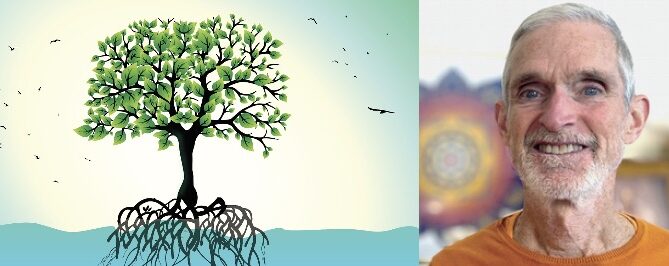Scripture Study: Raja Yoga – Keys to Sustainable Growth, 3 of 3-part
Online | $5-15 sliding scale | 3-part series, each session offered individually
Free for active IYISF teachers
3 Mondays, from 6:00 – 7:00pm:
Part 1 – March 24
Part 2 – March 31
Part 3 – April 7
It can be fascinating to research and grasp the meaning of the Yoga Sutras, but unless we find ways to embody these principles in daily life, we only scratch the surface of the benefits held within the words. In this series, we will explore 4 specific methods to deepen our personal experience of selected sutras and take concrete steps toward sustainable personal growth. We will use a system of reminders, guided reflection, and group support to bring these principles into a lived experience.
The Yoga Scripture Study series is an offering in which participants learn and discuss how the teachings of Yoga apply to our daily lives. We read passages, take time to reflect upon them, and share with each other how these words and practices support us on the spiritual path.
All are welcome to join any one or all of the sessions.
Swami Ramananda, C-IAYT, E-RYT 500, is the Executive Director of the Integral Yoga Institute in San Francisco, C-IAYT, and a greatly respected senior teacher in the Integral Yoga tradition who has been practicing Yoga for over 45 years. Ramananda offers practical methods of integrating the timeless teachings and practices of Yoga into daily life and transforming the painful aspects of human experience into steps toward realizing one’s full potential. He leads beginner, intermediate and advanced-level Yoga teacher training programs in San Francisco and offers a variety of programs in many locations in the U.S., Europe and South America. Ramananda co-developed the Stress Management Teacher Training program with Swami Vidyananda, has trained many teachers to bring Yoga into corporate, hospital and medical settings, and has taught mind/body wellness programs in many locations. He is a certified Yoga therapist and founding board member of the Yoga Alliance, a national registry that supports and promotes yoga teachers as professionals. He co-founded The Spiritual Action Initiative (SAI), which brings together individuals committed to working for social justice for all beings and for the care and healing of our natural world. His warmth, wisdom and sense of humor have endeared him to many.



